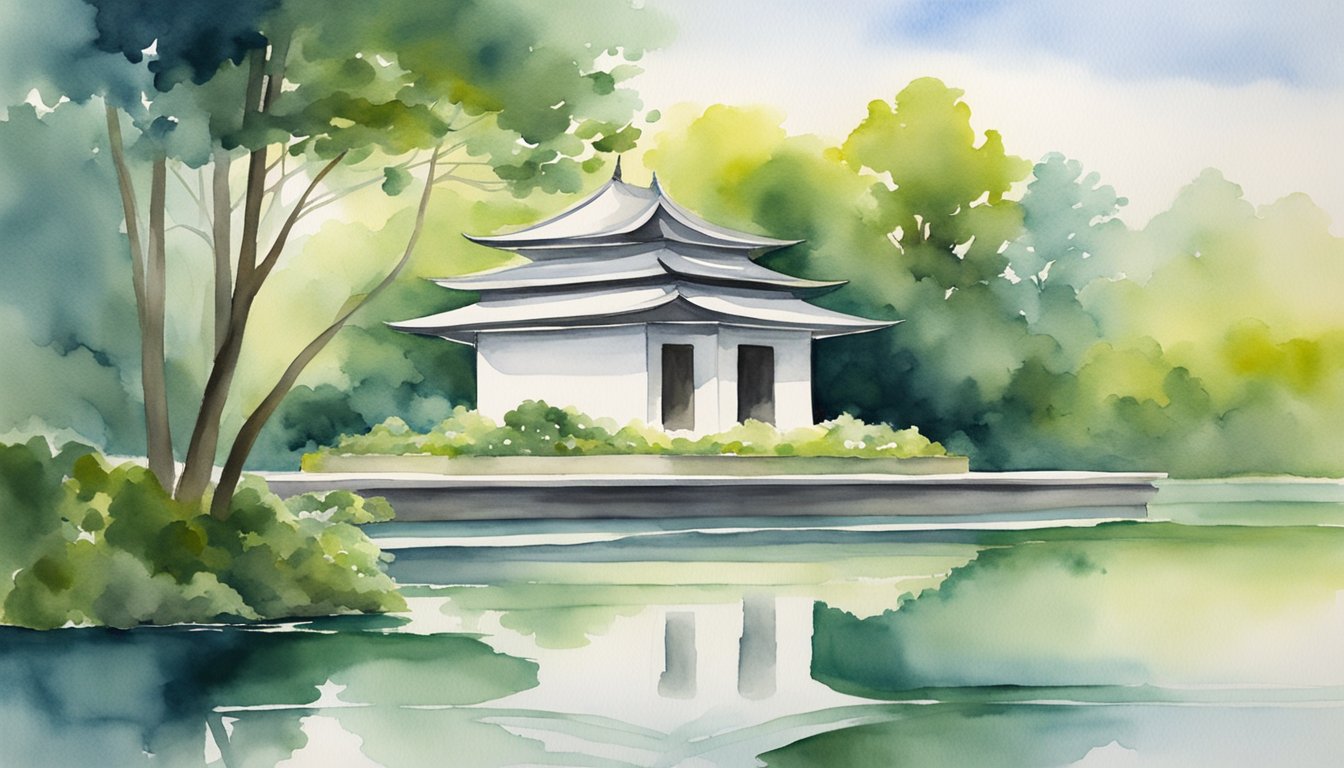In my years of exploring the spiritual realm, I’ve discovered that mirrors are more than simple tools for checking one’s appearance; they are a gateway to deeper understanding.
Throughout history, mirrors have reflected more than just our physical form; they’ve offered insights into our true nature and been pivotal in practices aimed at spiritual growth.
I’ve encountered countless traditions thrumming with beliefs that a mirror can serve as a portal, reflecting not just our image but our innermost being, our soul.
New: Ask the Angel!
A serene atmosphere with candles and incense, evoking a spiritual ambiance"/>
During my meditations, I’ve found that the simple act of gazing into a mirror enables an intimate confrontation with oneself that is quite revealing.
It’s a practice that transcends time, from the polished surfaces of ancient obsidian used by seers to the modern mirrors I use when guiding others in self-reflection.
The shared understanding in many cultures sees mirrors not only as objects but as instruments offering a glimpse into the invisible—the spiritual energies and entities that surround us.
And I can attest, the experiences I have had with mirrors in my spiritual work are indisputable, often countering the mainstream narrative of what spirituality truly encompasses.
Mirrors have also played roles in various mythologies across the globe, embodying concepts of truth and revelation, sometimes in literal and sometimes in electrifyingly metaphorical ways.
Let me be clear, most of what passes for spirituality today scratches only the surface.
Contrary to the popular belief that spirituality is all peace and light, my journey has shown me the tough love aspect of the spiritual mirror—it demands honesty and often reveals the uncomfortable truths we need to face for genuine transformation.
Key Takeaways
- Mirrors are gateways to self-understanding and spiritual insight.
- The use of mirrors transcends cultures and time, reflecting our spiritual essence.
- Spiritual journey with mirrors can reveal profound, sometimes challenging truths.
Historical and Cultural Significance of Mirrors in Spirituality
Mirrors hold a profound place in the spiritual practices of various cultures, often seen as portents of truth and revelation.
Ancient Civilizations and Their Spiritual Use of Mirrors
In ancient civilizations, the spiritual use of mirrors was not taken lightly.
Take for example, the Egyptians, who utilized polished bronze surfaces to gaze deeply into the beyond, seeking wisdom and guidance from the divine.
I’ve studied how these mirrors served as tools for spiritual awakening, leading individuals toward enlightenment through the art of self-reflection.
Mythology and Folklore
Mythology is riddled with tales where mirrors act as gateways or revealers of hidden truths.
The Greek myth of Narcissus, who became entranced by his reflection, always reminds me that mirrors in folklore often symbolize the duality of self-perception and self-awareness—a theme deeply embedded in the spiritual journey.
Mirrors in Religious Ceremonies and Rituals
Mirrors are integral to religious ceremonies, serving as tools for introspection and the pursuit of clarity.
My own experiences align with this; ceremonies I’ve attended have employed mirrors to invite participants to look beyond the physical and access a deeper spiritual health.
Through rituals, mirrors become conduits, reflecting not just our physical form but the essence of our spirit.
Modern Reflections of Spirituality

In today’s world, spirituality often intersects with personal development and psychological well-being, redefining ancient practices for contemporary life.
Mirrors, both literal and metaphorical, serve as tools in this journey, reflecting more than just our physical appearance.
Mirrors in Contemporary Spiritual Practices
I’ve observed that mirrors aren’t just for checking your hair anymore.
In modern spiritual circles, they’re used for spiritual cleansing, allowing individuals to confront and release negative energies.
Many of my clients have shared that after such practices, they feel lighter and more in tune with their surroundings.
Psychology and Self-Perception
It’s a known fact that how we see ourselves can shape our reality.
I often tell my clients, your inner critic or cheerleader lives in that reflective glass.
With the knowledge that mirrors can drastically affect self-perception, some therapists integrate them into sessions, encouraging patients to engage in direct self-reflection.
This often leads to breakthroughs that traditional talk therapy might take much longer to achieve.
Mirrors and Meditation
I’ve always been a proponent of unconventional meditation methods.
For instance, I find that gazing into a mirror during meditation can precipitate profound personal revelations and insights.
You’re not just sitting quietly; you’re actively engaging with your own gaze, which amplifies the meditative experience.
The self-awareness cultivated here often parallels the stories of spiritual awakening that have been narrated in countless movies about spirituality.
From my own experience and the shared experiences of those I guide, mirrors in modern spirituality are multifaceted tools bridging the ancient and the new, helping us see beyond the surface to the truths that lie within.




